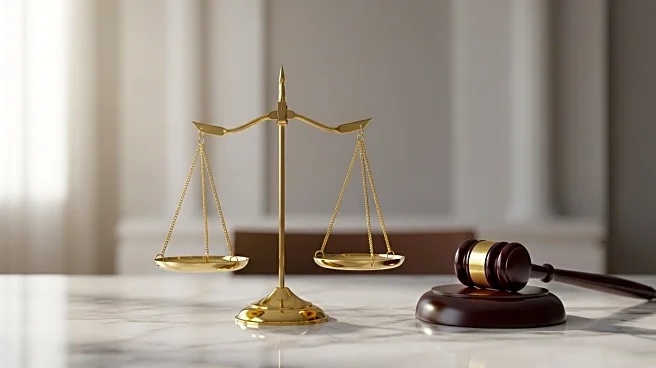What's Happening?
President Trump and his administration are actively defending his tariffs following a ruling by the Full U.S. Court of Appeals for the Federal Circuit, which declared the tariffs illegally imposed. The tariffs, known as 'Liberation Day' reciprocal tariffs, are a key component of Trump's second presidency. Despite the court's decision, Trump has announced plans to appeal, accusing the court of bias against him. The administration argues that the tariffs are essential for national security and economic stability, although critics claim they contribute to inflation and economic volatility. The ruling comes as the Bureau of Labor Statistics is set to release a crucial jobs report, which could further impact the administration's economic strategy.
Why It's Important?
The court's decision to rule against President Trump's tariffs has significant implications for U.S. economic policy and international trade relations. The tariffs have been a contentious issue, with critics arguing they increase costs for consumers and strain relations with foreign countries. The administration's defense of the tariffs highlights the ongoing debate over their impact on inflation and economic growth. The upcoming jobs report could provide further insight into the economic effects of the tariffs, influencing public opinion and policy decisions. The appeal process may also set a precedent for future trade policies and legal interpretations of tariff imposition.
What's Next?
President Trump plans to appeal the court's decision, potentially taking the case to the U.S. Supreme Court. The administration is expected to continue advocating for the tariffs, emphasizing their importance for national security and economic stability. The release of the Bureau of Labor Statistics jobs report will be closely watched, as it may affect the administration's economic strategy and public perception. Stakeholders, including businesses and foreign governments, will likely respond to the developments, potentially influencing trade negotiations and economic policies.










